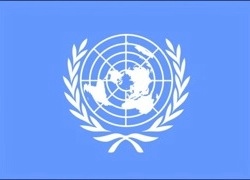
This month, the once vague idea that businesses have duties toward human rights became explicit. The United Nations Human Rights Council unanimously endorsed the Guiding Principles for the Implementation of the UN Protect, Respect and Remedy Framework, a document the UN itself called “unprecedented.” It is more than that: it’s game-changing. The vote of the 47 members of the Human Rights Counsel sent a clear message to corporations worldwide: human rights are now the business of business.
The endorsement of the ‘Guiding Principles’ culminates a six-year process that was led by Harvard Professor John Ruggie. In 2005, Prof. Ruggie was named Special Representative to the Secretary General on human rights and transnational corporations. Prof. Ruggie received a three-year mandate to clarify corporate human rights standards for both business entities and states. He produced the Framework for Human Rights and Business that received unanimous endorsement from the Human Rights Council. In 2008, he was given another three years to further develop his Framework into the guidelines that were approved on June 16, 2011. Prof. Ruggie himself observed “the Council’s endorsement establishes the Guiding Principles as the authoritative global reference point for business and human rights.”
Prof. Ruggie’s work has capped the debate on whether business enterprises have human rights duties. The ‘Protect, Respect, and Remedy’ framework requires States to protect against human rights abuses by corporations, corporations to respect human rights, and both to furnish remedies for victims of human rights abuses. The Guiding Principles lay out specific actions governments and businesses need to perform. For instance, States must clarify expectations of corporate behavior, enact and enforce legislation, and investigate and remedy abuses. Corporations must formally state a commitment not to violate human rights, and demonstrate their efforts to uphold that commitment, through assessment, monitoring and remedial actions. The Guiding Principles outline a human rights due diligence process. This entails assessing actual and potential human rights impacts; integrating and acting upon the findings; tracking the effectiveness of responses; and communicating how impacts are addressed. In addition, the Human Rights Council approved the creation of a working group that will monitor the implementation of the Guiding Principles. The group will consist of five experts that will be selected at the next session of the Human Rights Council in September.
Though the Guiding Principles received unanimous approval from the UN, some human rights activists and Council members expressed disappointment. The representative from Ecuador lamented that the framework, by failing to create new legal liabilities for corporations, has fallen short. Oxfam questions the efficacy of leaving corporations and weak states to police themselves. However, virtually all major human rights organizations found something to praise in the Guiding Principles, admitting it was significant progress, even if they saw it as insufficient.
The Guidelines will have an immediate impact. Corporations that have pledged to align their operations and strategies to universal human rights norms now have substantive guidance. The Guidelines also provide a clear, uniform system for corporate evaluations, which can be shared with the public. In addition, the Guidelines have already been endorsed by large multinational corporations including Coca-Cola Co., General Electric and Goldcorp.
We at NomoGaia have been following, supporting and working with Prof. Ruggie and his team for several years, specifically on the issue of a corporation’s duty to investigate how its actions affect human rights. Our focus has been developing reliable methods of evaluating these impacts. The UN’s Guiding Principles define and mandate such assessment. There is little doubt that the ideas contained in the Guiding Principles will have a major influence on future theory and practice in the increasingly important arena where human rights and corporate action intersect.


